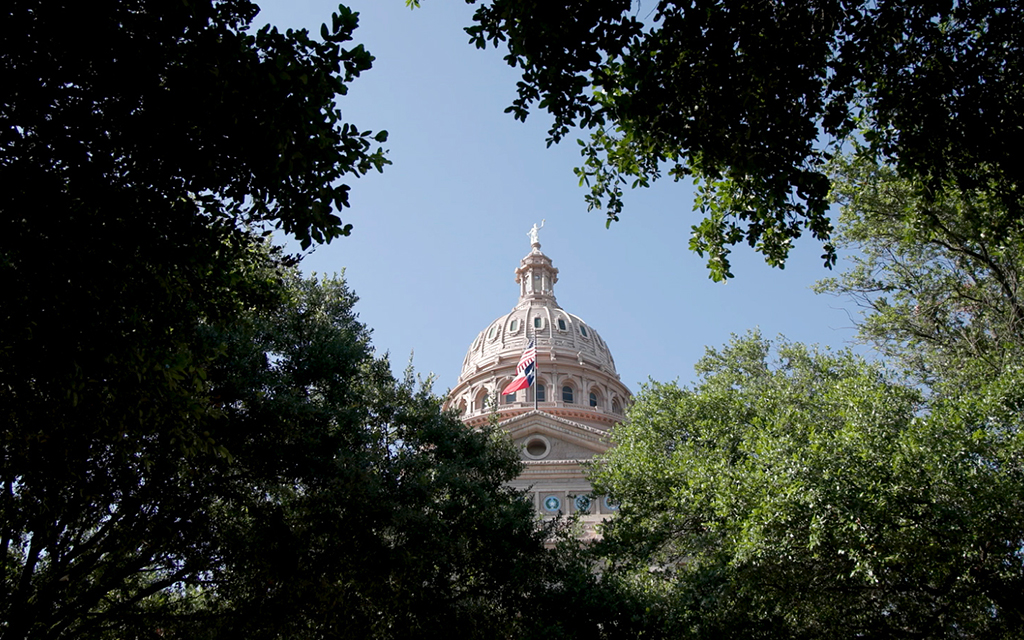
After Roe v. Wade was overturned, some prosecutors vowed not to prosecute abortion-related cases. Now states are fighting back, passing laws or using executive orders to limit prosecutorial discretion. (Photo by Joseph Kual Zakaria/News21)
MIAMI – Former Florida State Attorney Andrew Warren never imagined that signing a letter would cost him his job.
Warren joined dozens of elected prosecutors nationwide last summer in condemning the criminalization of abortion post Roe v. Wade. Their public statement said, in part, “prosecutors have a responsibility to refrain from using limited criminal legal system resources to criminalize personal medical decisions.”
In response, Gov. Ron DeSantis used an executive order to suspend him as state attorney for the 13th Judicial Circuit, covering Hillsborough County – Florida’s fourth-most populous – which includes the city of Tampa.
Warren had walked into the latest political fight over abortion in the U.S. – efforts to deny prosecutors the discretion to decide whether to pursue cases against those who violate state abortion bans.
But such maneuvers don’t stop at abortion, and experts on either end of the political spectrum say these efforts stand to dramatically alter the criminal justice system, where prosecutors normally decide whether to pursue charges based on evidence and the integrity of a case.
“Discretion is our North Star,” Warren said in an interview with News21. “Prosecutorial discretion is at the heart of everything that prosecutors do, from how you allocate resources in the office to where you focus your attention.”
A January 2023 report from Public Rights Project and Local Solutions Support Center found that four states – Iowa, Pennsylvania, Tennessee and Utah – had passed a total of five so-called “preemption laws” to curb the autonomy of prosecutors.
This year, several other states considered bills related to prosecutorial oversight, with new laws taking effect in Texas and Georgia. The Texas measure sets out procedures for removing prosecutors for refusing to prosecute an offense under state law, while Georgia’s establishes an oversight committee to govern prosecuting attorneys.
Though most of the action has come in states led by Republicans, Arizona Gov. Katie Hobbs, a Democrat, signed an executive order on June 23 moving any county prosecutions related to abortion under the purview of the attorney general, who is also a Democrat.
Twelve out of 15 county attorneys in the state called it “usurpation of the rightful decisions of elected prosecutors” in a letter to Hobbs.
“A governor came in and, against the explicit will of our state Legislature, attempted to essentially strip me of my authority to prosecute,” Kent Volkmer, attorney for Arizona’s Pinal County, said in an interview. “I’ve been elected twice by my constituents and by the people in Pinal County to use my judgment and use my discernment in prosecuting cases. Essentially the governor said, “Yeah, you can’t be trusted.’”
In the Florida case, Warren sued DeSantis in federal court.
“The governor had alleged I had made some blanket policy that I wasn’t going to prosecute abortion cases, but a court of law determined that was absolutely not true,” Warren said.
U.S. District Judge Robert Hinkle found that Warren’s removal violated the Florida Constitution and the First Amendment but said he did not have authority to grant relief. The Florida Supreme Court eventually tossed the case, saying too much time had passed.
The discretion Warren has is a tool that prosecutors have across the board, both at the state and federal levels.

Last year, former Florida State Attorney Andrew Warren joined prosecutors nationwide in condemning the criminalization of abortion post Roe v. Wade. In response, Gov. Ron DeSantis used an executive order to suspend him – one of several examples of state leaders cracking down on prosecutorial discretion. (Photo courtesy of Andrew Warren)
The American Civil Liberties Union calls prosecutors “the most powerful actors in the criminal justice system,” stating that prosecutorial discretion is key to maintaining the criminal justice system, changing practices and implementing reforms.
More recently the phrase has been interpreted negatively and used to accuse prosecutors of shirking responsibilities – a criticism that’s become more common in the year since the Supreme Court’s Dobbs v. Jackson ruling eliminated a federal right to abortion and returned regulation of the procedure to the states.
But reform-minded prosecutors with alternative ideas about dealing with violent crime, drug possession, gender-affirming care and other issues started drawing ire even before that ruling, said David Toscano, a former Virginia politician who has written about the impact of Dobbs on prosecutorial discretion.
Toscano, a former state legislator, said the death of George Floyd was a turning point for the emergence of “progressive prosecutors,” who ran on platforms of not prosecuting certain kinds of crimes and using the criminal justice system as a mechanism for correcting racial injustices. Elected officials who disagreed with these policies moved to intervene.
“Legislators in more conservative areas are trying to inhibit prosecutors in urban, more blue or Democratic areas from making decisions in the criminal justice field to correct errors that may have occurred in the past,” said Toscano, an attorney specializing in family law and real estate.
Then the Dobbs decision dropped.
“It was like pouring gas on a fire,” Toscano said.
As new state laws on abortion went into effect, so did measures to keep prosecutors from bowing out of abortion cases.
Georgia’s Senate Bill 92 creates a Prosecuting Attorneys Qualifications Commission, “which shall have the power to discipline, remove and cause involuntary retirement of appointed or elected district attorneys or solicitors-general.”
The members of that commission are appointed by state leaders, including the governor.
Supporters say the philosophy behind some of these bills is accountability and addressing concerns that prosecutors are crippling the justice system by not enforcing the law.
“I look forward to signing transformative legislation that holds rogue district attorneys accountable when they fail to protect Texans,” Texas Gov. Greg Abbott tweeted in May 2023, just before signing HB 17.
Toscano, Warren and Volkmer agree that holding prosecutors responsible for their work is important – just like in any other job. But they said there is a clear distinction between refusing to prosecute entire classes of crimes and using discretion to be selective about when, if and how to pursue charges.
Volkmer, a Republican, says on his website that he wants “county prosecutors to look at each case on its individual merits and seek a penalty that fits each individual crime.” He also favors sentencing alternatives other than prison.
“When you’re asking us – ‘Will you prosecute this case? Will you not?’ – if anybody just gives you an answer saying yes or no, we’ve got much bigger issues, because the problem is every case should be evaluated on its own merits,” he said.
Volkmer is not a fan of how drug cases too often end in incarceration, but he still has to consider them. On the flip side, some crimes are narrow enough to allow him to pass on prosecution.
“In Arizona, it is illegal to commit adultery,” Volkmer said. “Discretion is saying I’m not going to prosecute the adultery case. I am going to prosecute drugs, but I’m going to prosecute them in a way that upholds my call to be a minister of justice.”
Toscano said prosecutor accountability is best exercised at the ballot box. Volkmer agrees.
“There’s no greater accountability than having to go before your constituents tell what you’ve done, why you’ve done it and have to account for all decisions,” Volkmer said.
“There is now a playbook where the authority is going to continue to be whittled away,” he added. “This isn’t somehow just limited to the Dobbs decision.”